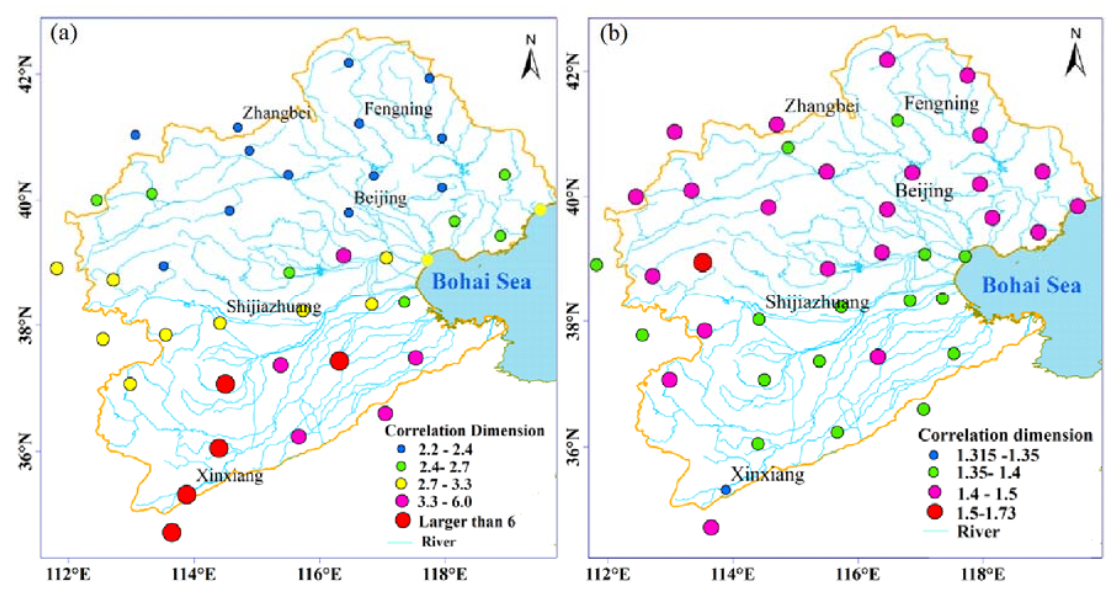Recently, a paper titled” An improved Grassberger–Procaccia algorithm for analysis of climate system complexity” has been published in the journal” Hydrology and Earth System Sciences”.
Understanding the complexity of natural systems, such as climate systems, is critical for various research and application purposes. In this paper, an improved Grassberger-Procaccia (G-P) algorithm was proposed, which integrated the normal-based K-means clustering technique and Random Sample Consensus algorithm (RANSAC) for computing correlation dimensions. The results revealed that the new method outperformed traditional algorithms in computing correlation dimensions for both chaotic systems. Based on the new algorithm, the complexity of precipitation and air temperature in the Haihe River basin (HRB) in northeast China was further evaluated. The results showed that there existed considerable regional differences in the complexity of both climatic variables across the HRB. Specifically, precipitation was shown to become progressively more complex from the mountainous area in the northwest to the plain area in the southeast; whereas, the complexity of air temperature exhibited an opposite trend with less complexity in the plain area. Overall, the spatial patterns of the complexity of precipitation and air temperature reflected the influence of the dominant climate system in the region.

The spatial distribution of the correlation dimension values
The modified G-P algorithm proposed in this study can be used more objectively to characterize the complexity of climate systems (and other hydrological systems, such as streamflow, soil moisture, and groundwater), and thus provide a more reliable estimate of the number of dominant factors governing climate systems.
Chongli Di, Tiejun Wang*, Xiaohua Yang, Siliang Li. An improved Grassberger-Procaccia algorithm for analysis of climate system complexity. Hydrology and Earth System Sciences, 22, 5069-5079, 2018.
The paper link: https://www.hydrol-earth-syst-sci.net/22/5069/2018/